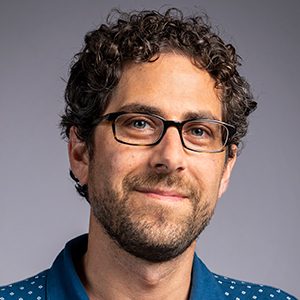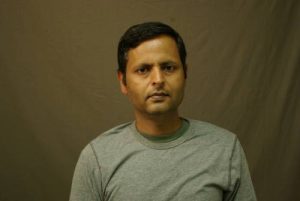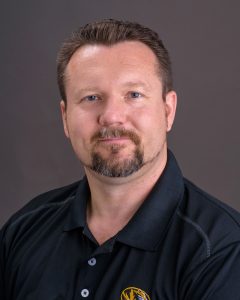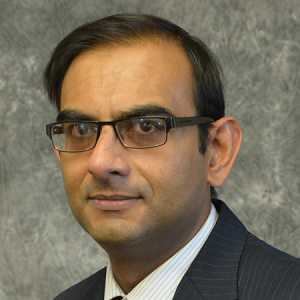
Oct. 23, 2018
R. Keith Slotkin
The Slotkin laboratory uses Arabidopsis thaliana, a reference flowering plant, as a model to investigate how eukaryotic cells repress transposable elements. Transposable elements are fragments of DNA that can duplicate or move from one location to another. Their ability to replicate has resulted in transposable elements occupying vast amounts of most eukaryotic genomes, including nearly half of the human genome. Although often overlooked or dismissed as “junk DNA”, transposable elements have played an important role in the structure and evolution of the eukaryotic genome. However, when transposable elements are active, they cause DNA damage and new mutations by inserting into…

Oct. 17, 2018
Iuliia (Yulia) Innokenteva
Yulia is a fifth-year PhD student in bioinformatics at the University of Missouri, Columbia. With a strong background in health informatics and a Master of Public Health degree from MU, Yulia brings a unique interdisciplinary perspective to her research. Her primary focus as a PhD student lies in developing efficient pipelines for single-cell RNA-seq data interpretation, a critical area in the field of bioinformatics. Additionally, Yulia utilizes her expertise in machine learning to tackle the complex task of tumor microenvironment deconvolution, contributing to advancements in cancer research.

Aug. 30, 2018
William Baskett
I am a PhD student studying bioinformatics. I received my bachelor’s degree in biology from the University of Missouri in 2018 and my masters in data science in 2021. My research focuses on developing algorithms to extract information from biomedical data.

July 27, 2018
James Keller
James M. Keller is a Curators Professor in the Electrical Engineering and Computer Science Department at the University of Missouri as well as R. L. Tatum Professor for the college. Keller’s research interests are in computational intelligence with current applications to eldercare technology, bioinformatics, geospatial intelligence and landmine detection.

July 9, 2018
Susanta Behura
I apply bioinformatics and data science tools in diverse research areas such as 1) transmission of arboviral diseases, 2) animal diseases and 3) pregnancy establishment and success. I am also interested in basic researches relating to genome biology and evolution, comparative genomics, non-coding RNA and regulatory elements, and biological roles of small open reading frames.

July 18, 2017
Mikhail Kovalenko
Mikhail came to Bioinformatics with an Electrical Engineering and computer programming background. Recognizing the trends towards massive data processing needs in health care, he joined MUIDSI in hopes to make his own contribution to the advancement of computational diagnostic tools and the Precision Medicine initiative.

Feb. 15, 2017
Sounak Chakraborty
Sounak Chakraborty is an Associate Professor at Department of Statistics, University of Missouri. His general research interest involves statistical methods for data mining, machine learning, survival analysis, Bayesian methodology, and their applications in bioinformatics, finance, medical and healthcare data. His developed models and tools are successfully applied to several types of cancer data for detecting the stage of the cancer, type of cancer, and survival time of the patients. They are also used in predicting the composition of a material based on near infrared spectroscopy like plasma, petroleum, and food content. Prof. Chakraborty is awarded with multiple NSF and NIH…

Dec. 28, 2016
Elizabeth King
My research is focused on understanding the genetic basis and evolution of organismal allocation patterns. The core life processes for every organism, such as surviving in the environment, finding food and mates, and reproducing, require the organism to allocate some of its limited resources to these functions. Different selective pressures have produced the diversity of strategies that we see within and among species in how and when to allocate resources to different structures and functions. I use both computational and empirical techniques to try to understand both how different allocation strategies evolve and the underlying genetic architecture of this highly…

Dec. 28, 2016
Christine Elsik
Christine Elsik’s research expertise is in computational biology and bioinformatics, and she works specifically in genome sequencing and annotation. She has worked extensively with genomes of cattle and a number of insect species. Chris will have a joint appointment between Animal and Plant Sciences and will be located in the Animal Science Research Center. She will have responsibilities in developing a collaborative research program in genomics, advising graduate students and teaching bioinformatics or computational biology.